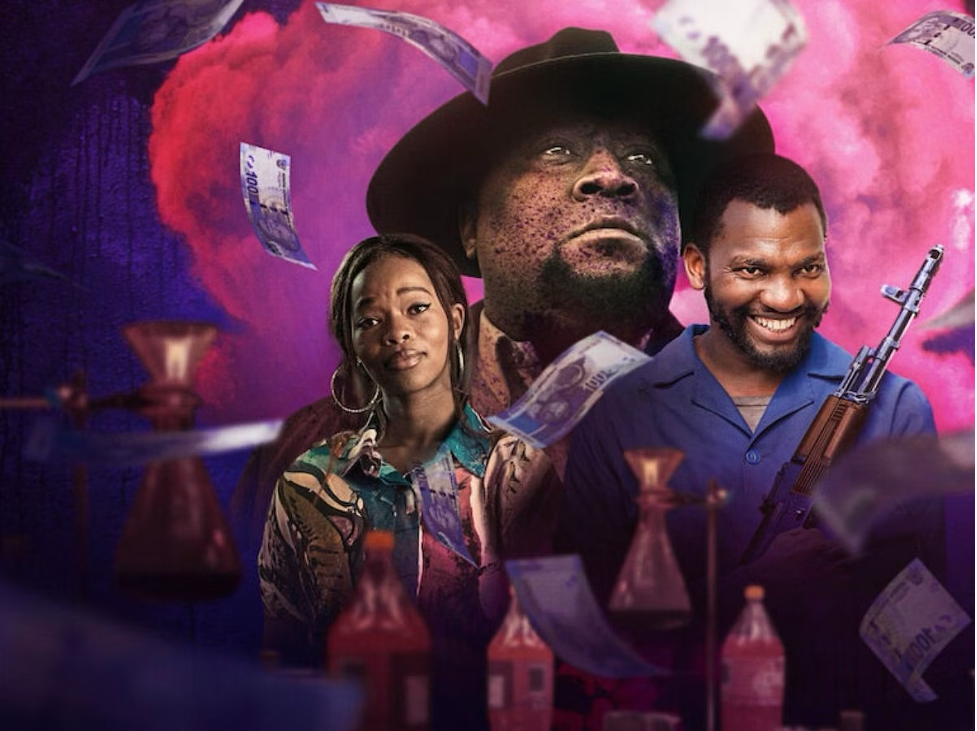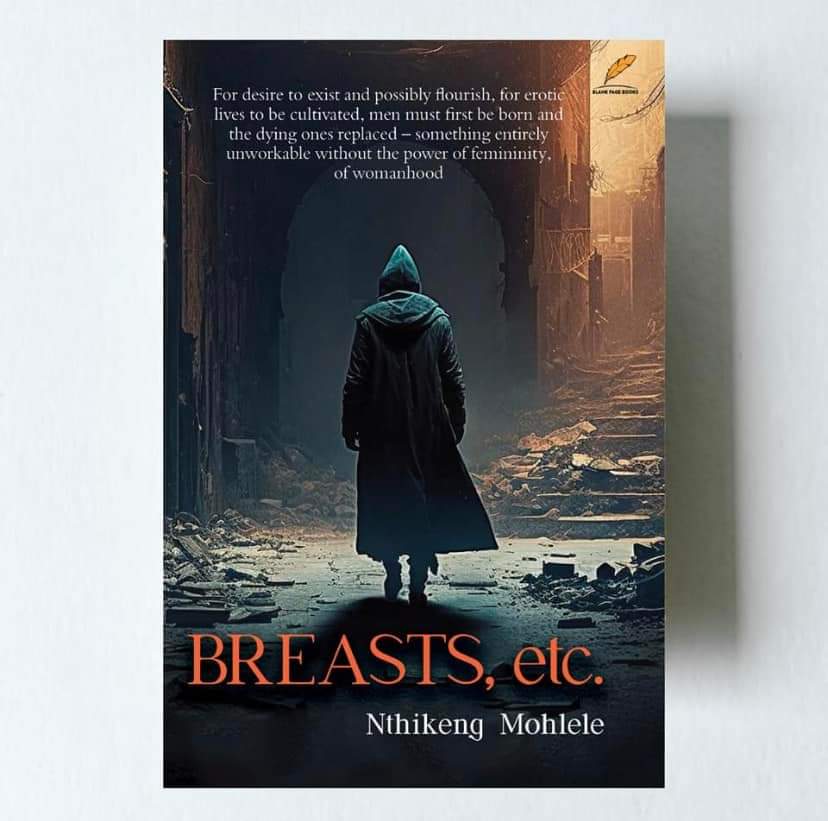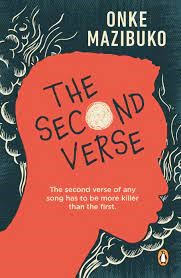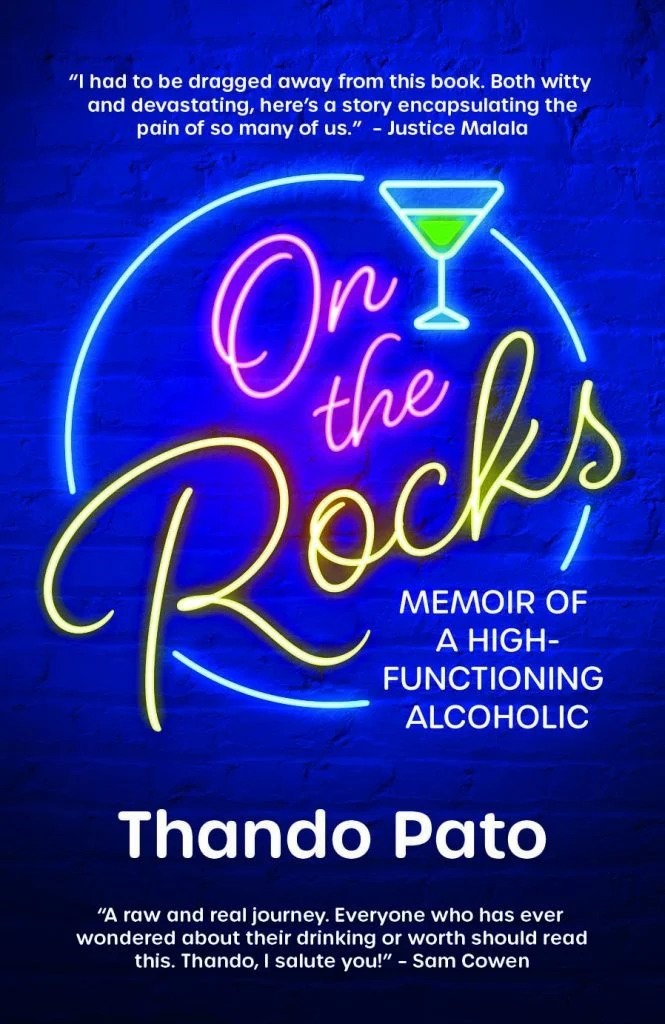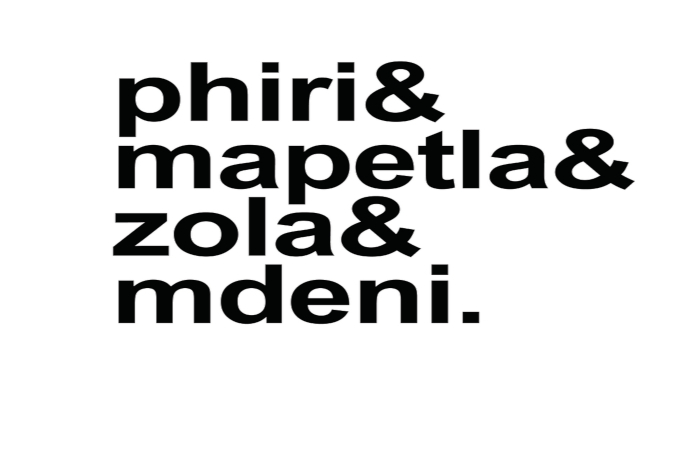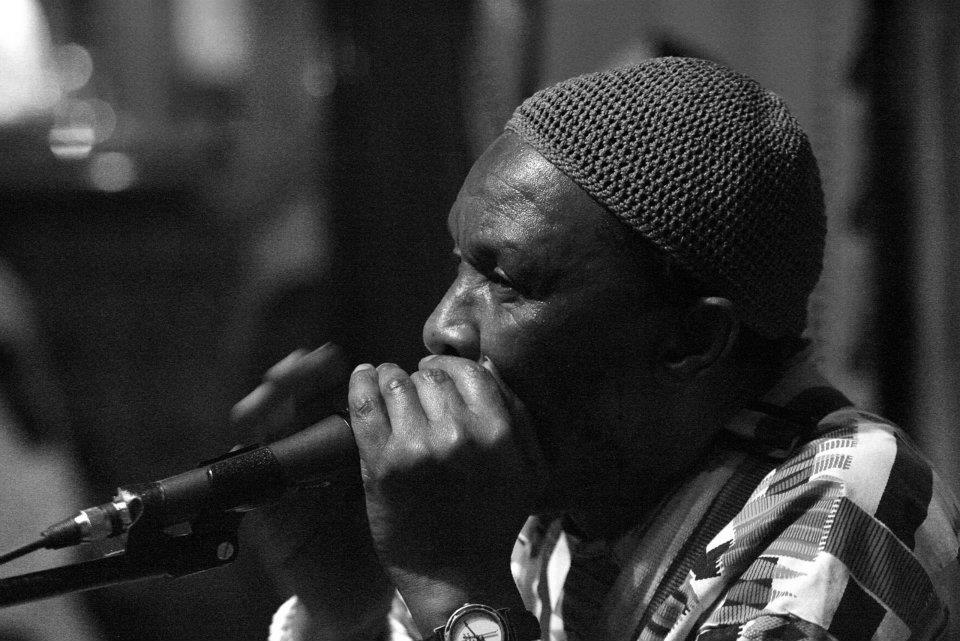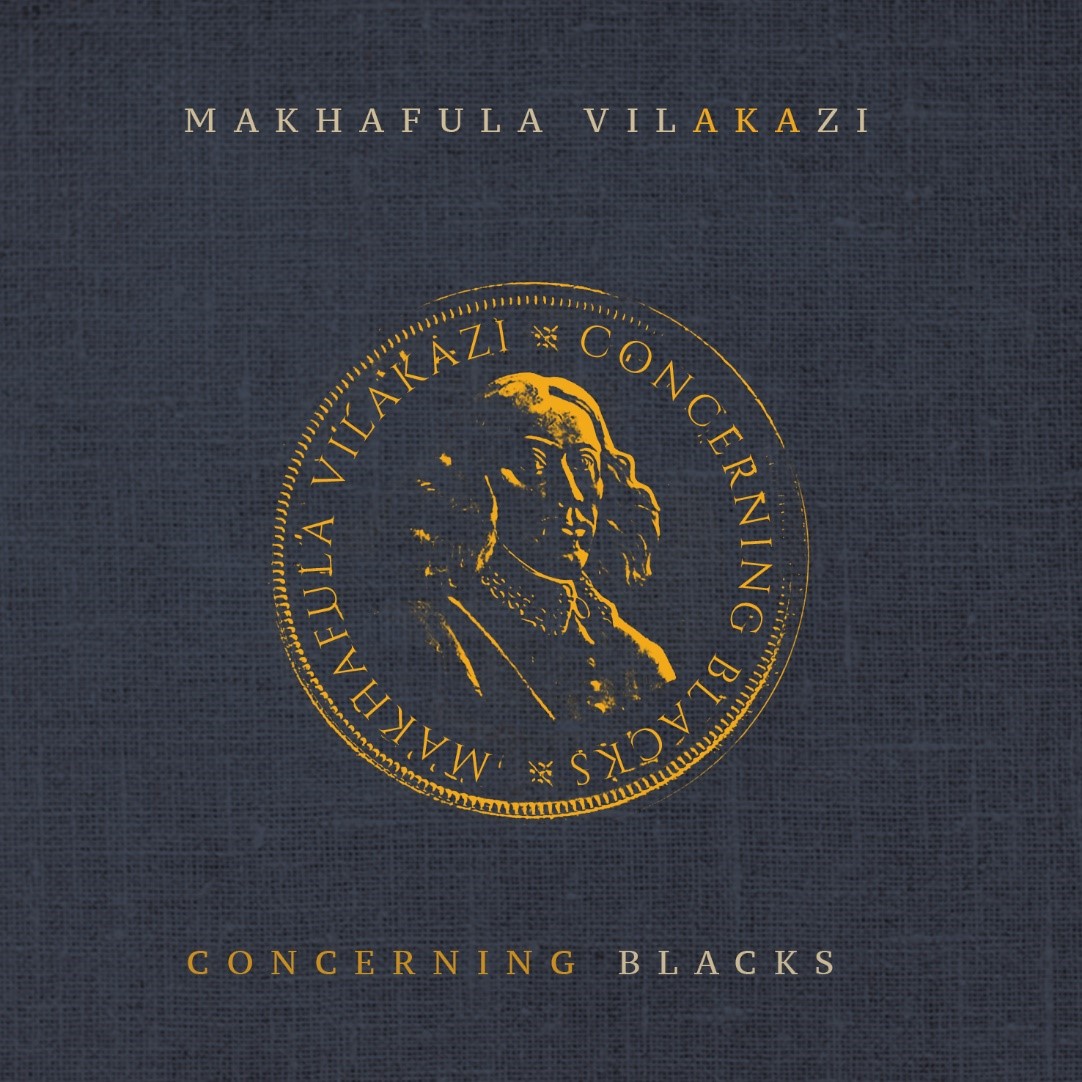Teacher, entrepreneur, and creative, Jefferson Tshabalala is an eclectic practitioner of the word in theater, poetry, and now on screen. After a successful run of Khongolose Khommanding Khommissars (KKK) at the National Arts Festival and recently at Market Theater, a daring theatrical satire written by the man of the hour, Tshabalala also made his debut on our TV screens. Big Nunu’s Little Heist, premiered on Netflix in September this year, has gained Tshabalala another feather in his multifaceted creative cap. “Delivery Man is an interesting character, a very stoic person and ex-soldier,” says the 2020 Standard Bank Young Artist of the Year for Theater. Also known as J.Bobs, Tshabalala is the talk of the town from Qqeberha to Polokwane, from his stage work, fashion brand, and now his commendable portrayal of an ex-soldier in the comedy action film.
Big Nunu’s Little Heist is a story about an ex-soldier turned delivery man - played by Tshabalala - who is drawn into a local kingpin’s bumbling gang to pull off a daring heist in an infamous South African township. The high-pitched kingpin, Punchununu, masterminding the heist, is played by Tony Miyambo. The supporting cast includes Thulani McKing, Amahle Khumalo, Daniel Hadebe, and Thulane Shange. The words “Uphi uPuntsununu” uttered by Tshabalala’s character - when one initially sees the trailer - are militant, antagonistic, and suspenseful. The intense tone and rich cinematography conjure an unknown appetite to sit back and witness South African comedic excellence at its best. Laced with a variety of local languages such as isiZulu, isiXhosa, and seSotho, a colorful wardrobe, and an upbeat tone, Big Nunu’s Little Heist is an authentic South African action comedy. Tshabalala describes this film as an “Action comedy high sketch film of epic proportions with a stellar ensemble of remarkable thespians.” Produced by Kagiso Lediga’s Diprente Films while written and directed by Andy “Admiral” Kasril, this fun caper is evocative of "Pure Monate Show." Despite some parts being cringeworthy, it’s an overall hilarious film.
What brand of Johustleburg juice does this Eastern Cape-born sip to keep him bobbing to a multitude of tones informing his craft, I wondered. Rocking his Seen Pha threads with an infectious smile while crisscrossing Newtown streets and theater rehearsal rooms, we eventually sat down to chat about his new role.
RSM: First, congratulations on your new role. What process did you go through to prepare for the role?
JT: My biggest preparations for the role were about finding the essence and physicality of the character and being super comfortable with the heist component, which required expert use of the guns. I had to find out from the military persons I know, what it would have been like being iJoni (a soldier). So I connected with a weapons coach affectionately known in the industry as Pistol Pete. Working with him made me realize how gun use is different from civilian to military training to different states and types of military training.
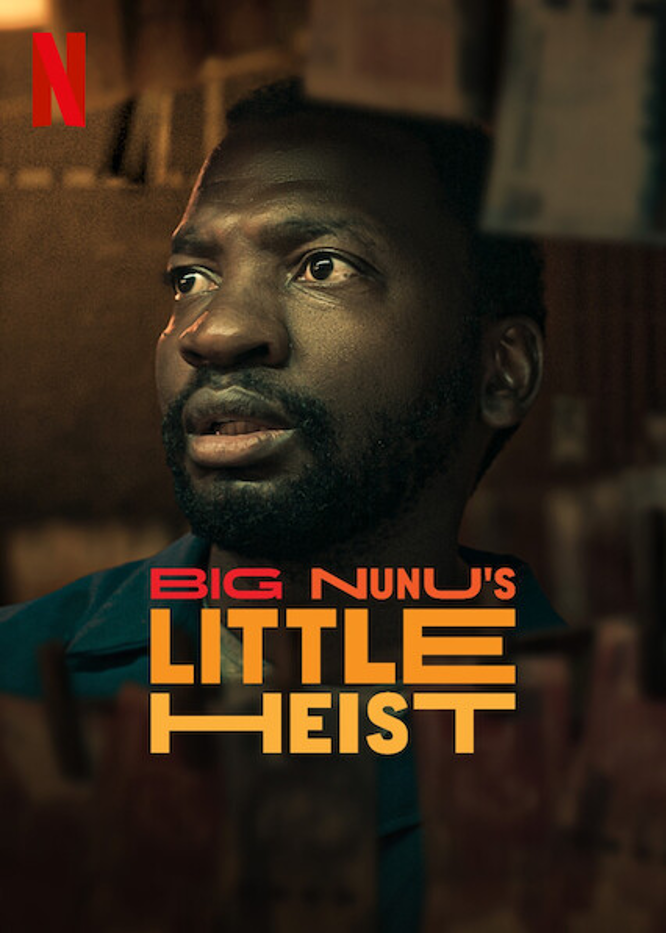
RSM: There is an array of heavyweight South African comedians such as Mpho Popps, Khanyisa Bunu, Kagiso Lediga, and Celeste Ntuli. I can imagine the difficulty of keeping a straight face during shots; tell us more about that creative energy during shoots working with such comedians, were you ever intimidated?
JT: These actor-comedians are such consummate professionals and so welcoming that intimidation is the last thing on your mind, and they make you feel like you belong, so there is no ego in the room when working with these kinds of people. They are accommodating and playful. They are learning from you as much as you are learning from them. Obviously, we were making an action comedy where there were a lot of hilarious moments, and I guess that’s where the professional component comes in. It was a film that relied heavily on improvisation, so some things will catch you off guard, but as long as you were responding in the essence of the character, then it was true.
RSM: You are a trained theater practitioner; take us through that transition and flexibility between stage and screen, any challenges?
JT: The discipline of stage and screen, although both artistic vocations, requires different temperaments. So as you know, on stage, there is no take two, there is no “let’s try that again from the top.” When you are in the rehearsal process of a play, you can do all of that, but the moment the curtains open to an audience, then it's go time. The luxury of the screen is that you can perfect something. You can rehearse a scene; you can block it multiple times and get in the can what you feel super comfortable with. I think I really appreciated that; it gave me an interesting insight on how to work and make different range options. There is nothing as immediate as the stage because even the audience informs your performance; they inform when and how to pause depending on their reactions. So I think entering both fields as disciplines that have their own requirements is the best way to manage the changes and challenges, but it was fun working on screen, and it was fun working on stage again.
RSM: What are your hopes for "Big Nunu’s Little Heist"?
JT: My big hope is that the larger South Africa gets to see it. Currently, it is on Netflix, and people who have access to Netflix can view it, but I feel like it’s such a South African movie. I would like to see the film get syndicated across the free-to-air channels. I want as many South Africans as possible to see this picture. I am very proud of the work we managed to do here, and I think it should be seen by everyone.
RSM: Lastly, what are your views on African stories being told well on global streaming platforms such as Netflix?
JT: I think as a third-world country trying our best to produce first-world content, it’s amazing when well-told South African stories encapsulate South African characters. When we can export work that is quintessentially us, it’s amazing because it positions us in the world as unique creative storytellers and performers. So I am very proud to be part of something that pitches a new kind of South African action-comedy film genre. I think the more we export amazing content, the more the world looks to us on what stories we are telling. So it’s always a great and welcomed initiative for that to happen.
Tshabalala is undoubtedly one of the cool kids (or Grootman) with all comedic combos communicating in continuing the satirical sketch comedy format. One laughs out loud and leaves the lounge with hope about how South African sketch comedy still has its place in contemporary film and stage work. Experimental with his unique brand of vernacular and also a game show host and rapper, this multifaceted artist is definitely coming for yonke iNto (everything)!!!

